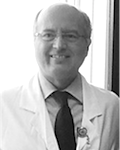The president of the Mexican Society of Cardiology sat down with us to share his view of the cardiology medical field in the country, why Mexico needs to collaborate more with other nations to promote awareness of cardiovascular diseases and how prevention is the solution to most health issues.
You took office as President of the Mexican Society of Cardiology in January 2014. What are its most important activities?
The society was formed in 1935 and is the oldest of its kind in Mexico. I am the current leader of the board and work alongside cardiologists with different professional expertise to bring the best information and medical advances to the Mexican and international medical communities. Every few months we organize symposiums featuring international professors where we can share information about prevention and treatment in the field of cardiology. Since I took office, participation has been growing steadily and we host events in Mexico City as well as in other states, such as Veracruz, for those who cannot attend in the capital. We also try to expand our area of expertise and participate in international symposiums , such as in the United States and Europe, where we learn about different technologies that can benefit people in Mexico.
Cardiovascular diseases are currently the leading cause of death in Mexico, representing 18 percent of all deaths, 14 percent up if compared to 30 years ago. What are the reasons behind this trend and what is the society doing to raise awareness about it?
I believe this is an issue plaguing people worldwide. In developed as well as developing nations people are increasing suffering from heart diseases because of poor habits such as smoking, diabetes and obesity—which are huge issues plaguing also the Mexican society. To create awareness we organize a number of events such as the World Heart Day, which represents an opportunity to talk and educate citizens about the cardiovascular diseases affecting people in Mexico as well as worldwide. Moreover, in June 2016, with the support of the World Heart Federation, Mexico will be hosting the Worldwide Cardiovascular Symposium, a forum to discuss among other things measures to limit and prevent habits related to heart diseases, such as consuming too much sodium or too many calories. Our objective is to promote awareness and, in return, foster prevention.
One of the primary objectives of the 2013-2018 National Development Plan of the Ministry of Health is to reduce the mortality rate due to heart diseases by 25 percent until 2025. What is the government doing to reach this objective? And what still needs to be done?
The objective to reduce cardiovascular diseases by 25 percent by the year 2025 is also shared by the World Heart Federation and the Mexican Society of Cardiology. This is an ambitious project we are undertaking, but we hope to reduce mortality rates by teaching young children to abstain from smoking, that consuming excess amounts of sodium and calories is bad and exercise is good. The earlier we educate our youth, the sooner we can achieve success.
Our focus is moving towards prevention and away from treatment because we hope to educate enough people so individuals begin to do away with their bad habits and prevent diseases altogether. One of the most recent initiatives implemented by the Ministry of Health that we have strongly supported has been banning saltshakers on tables in restaurants. We also need to make consumers more aware of the calories, sodium and fat they are consuming by identifying the information on packages of food.
How would you assess the treatment of cardiovascular diseases in Mexico?
Mexico still struggles to make sure that all patients receive the adequate treatment in all regions of the nation, but fortunately with the growing use of generic drugs correct treatments are now more accessible. However, even though with the correct diagnosis, appropriate and accessible treatment things are looking more positive, in the first place we need to focus our attention on preventing cardiovascular diseases from occurring. The inclusion of cardiovascular treatment into the public healthcare insurance Seguro Popular, for example, has had a very positive impact on how this category of diseases are treated and diagnosed in Mexico and has helped diminishing mortality rate in recent years.
What are some of the latest research developments in cardiovascular medicine ‘made in Mexico’?
At the National Medical Center and at the National Institute of Cardiology we are currently developing biological heart valves and coronary stents that have proven to be long-lasting, cost competitive and provide high performance rates. However, we need much more R&D and clinical trials to occur in the country in order for us to be able to make more progress in the field. Right now we have research centers, but do not rely on the necessary funds to carry out the projects.
What are the strategic priorities of the Mexican Society of Cardiology for the next five years?
Despite the stringent requirements, we need more members to join the society. We definitely need to be closer to the Ministry of Health and the pharmaceutical industry in order to serve the needs of our patients. An increased collaboration with different stakeholders will ensure that our patients are treated correctly and with more precision. The more we are able to speak with different stakeholders, the more likely it is we will be able to reach more people in need. The only way to take our findings from the laboratory to the patient is to work jointly with the different Mexican authorities of health. Last but not least, we need more of an international presence, not only with the United States as it is the case today, but also with other Latin American nations. If we collaborate with other societies we will be able to learn from each other and work to serve the needs of our patients more efficiently. Only through collaboration can we properly serve the needs of patients affected by cardiovascular diseases.







